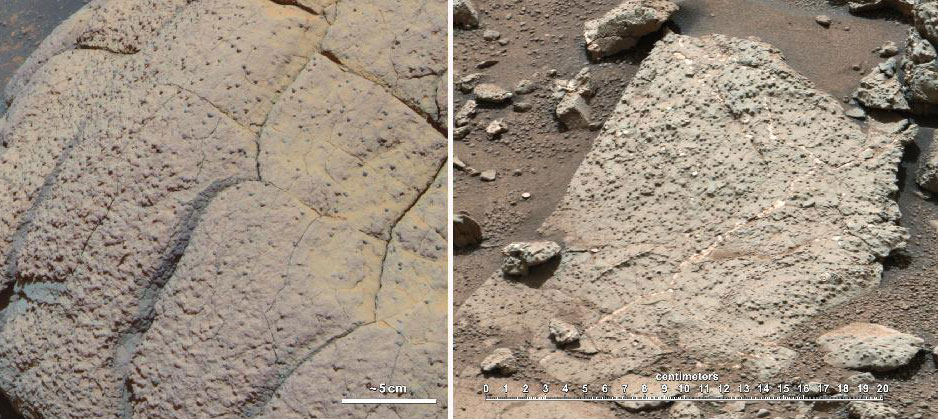
These images compare rocks seen by NASA's Opportunity rover and
Curiosity rover at two different parts of Mars. On the left is " Wopmay"
rock, in Endurance Crater, Meridiani Planum, as studied by the
Opportunity rover. On the right are the rocks of the "Sheepbed" unit in
Yellowknife Bay, in Gale Crater, as seen by Curiosity. Image credit:
NASA/JPL-Caltech/Cornell/MSSS
Big news from NASA JPL the other day:
An analysis of a rock sample collected by NASA's Curiosity rover shows ancient Mars could have supported living microbes. Scientists identified sulfur, nitrogen, hydrogen, oxygen, phosphorus and carbon -- some of the key chemical ingredients for life -- in the powder Curiosity drilled out of a sedimentary rock near an ancient stream bed in Gale Crater on the Red Planet last month. "A fundamental question for this mission is whether Mars could have supported a habitable environment," said Michael Meyer, lead scientist for NASA's Mars Exploration Program at the agency's headquarters in Washington. "From what we know now, the answer is yes."More at the MSL mission website. [NASA]

No comments:
Post a Comment